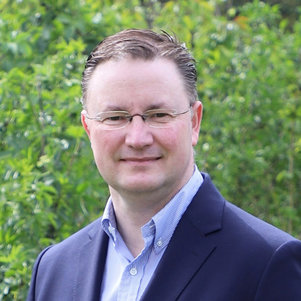Prof.dr.ing. Steffen Nijhuis
Professor of Landscape-based Urbanism
Department of Urbanism
Sustainable urbanisation, climate adaptation and biodiversity require a design approach that takes the landscape as its starting point. It focuses on a transdisciplinary design approach in which landscape serves as the basis for sustainable urban development. In short, that is what Professor Steffen Nijhuis concentrates on within his teaching and research on Landscape-based Urbanism. “The existing landscape logic provides starting points for planning and designing a socially and ecologically inclusive spatial environment across scales, from city to street profile. The ambition is to expand Landscape-based Urbanism as a field of research and promote its importance in society and the academic world.
Landscape-based design
The landscape offers structure, ecological coherence and variety, but is also flexible and multifunctional. Landscape also represents spatial-aesthetic values such as beauty and orientation in space and time. After all, the landscape is the result of man’s long-standing interaction with his natural environment. It is essentially always about a landscape-based, regional approach that looks at the area from a systems perspective and also works with the people. Thus it is both on a large scale and hyperlocal.
In addition to thorough knowledge of the landscape and how it can be used for spatial design, Nijhuis believes the thought and design process is of great importance. The generation of knowledge and solutions is a co-creative process in which stakeholders and their interactions play a crucial role. This is necessary in order to understand the landscape system in which work takes place.
Science and practice
Science that makes a difference in practice is the motto. Developing practice-related methods for knowledge development, strategy and design – methods that have been proven to work – plays an important role in this. Digital technologies such as GIS and AI have great potential for knowledge development and design explorations, which are not yet or hardly used. Investing in future generations of researchers and people in the field is an important means of advancing and implementing the ideas of Landscape-based Urbanism. Strengthening the relationship between the academic world and practice is very important. Working with governments and businesses is an essential part of this. In addition, the aim is to establish a centre of expertise in which Delft becomes the world’s go-to source of information regarding landscape-based sustainable urban development.
More information
Educational activities, publications and ancillary activities
